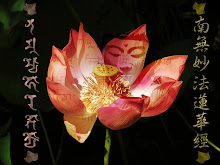While Chinese medicine increases in popularity in Western societies, it remains misunderstood by most of its new devotees as well as to the scientific community. Centuries-old and complex in its theories, it is often relegated to the category of "voodoo medicine." However, to gain a greater comprehension of the magic within the mystique, it is important to explore its origins.
Chinese medicine has its roots in Taoism, which holds a naturalistic view of the universe. By observing the natural world around them, the ancient Taoist sages determined that elements found in nature had a harmonizing and regulating effect on one another (for instance, earthen dams could contain water to prevent flooding, while wood could bind earth to prevent soil erosion.) In keeping with their universalistic view, the human body was seen as a smaller representation of the surrounding ecosystem, with the same "elemental" language applied to its functions and processes. As in nature, harmony and order was the goal, while disease indicated a breakdown in the relationship between the elements of nature. Thus, terms such as “blazing fire,” “dampness,” and “wind” became working descriptions of physical malfunctions in the body.
These terms carry over today, thousands of years after their inception. Practitioners of Chinese medicine regularly talk about their patients maladies as if they were giving a weather forecast. But rather than just forecast the condition, acupuncturists and Chinese herbalists actually work to restore balance to the patient’s internal environment. Using needles to access the energy within an acupuncture point or herbal formulas to alter the relationship of the “vital substances” of the body, Chinese medicine practitioners are able to effect change on the entire system. They do this by viewing the body as a whole comprised of intricately connected parts. Rather than seeing the body as a system of parts that make up a whole, it is the whole being—along with the interrelationship of individual parts (organs, muscles, nerve pathways, etc.)—that is assessed and treated in Chinese medicine.
But what is the unifying force for these different “parts”? What brings them together into one “whole”? In Chinese medicine, it is the “qi” or energy of the being that enlivens and connects the different systems of the body. It is also this qi that connects the body to the mind and spirit of the being. And THIS is what makes Chinese medicine so mystical to our Western minds. We don’t have an equivalent understanding of the body in our culture. We don’t have a relationship to the unseen and immeasurable. We are a society of science—and our science (with the exception of quantum physics), is deeply committed to the seen and measurable. “Energy” just does not fit into our paradigm.
So how do you explain a science based on “qi” to the Western mind? It is challenging, to say the least. Many attempts have been made to come to rational, plausible conclusions—countless studies have been performed to determine just how acupuncture works. Some say that it is because of the effect on nerve pathways and impulses to the brain. And these studies may well be correct. We must not assume, however, that just because “qi” is an unseen force, that it is not measurable. Certainly, it cannot be evaluated by ultrasound and its levels cannot be determined from a blood draw. But practitioners of Chinese medicine have relied on specific methods of observation to ascertain the quality of a patient’s qi for thousands of years. Observation of the tongue (its color, coat, and shape) and of the patient’s pulse (felt in 3 positions at 3 different levels, on each wrist, with the rate, rhythm, shape, and quality all bearing significance) are time-tested methods for evaluation that have guided Chinese medicine to correctly diagnose and treat its patient’s throughout the centuries. We should consider this valuable history before assuming that Chinese medicine is immeasurable and, therefore, invalid, but recognize instead that it’s mechanisms for measurement are simply different from our own. The future success of Chinese medicine in Western society does not lie in our being able to identify the mechanics of its functions. It lies in our ability to humble ourselves before its wisdom, to cease our efforts to explain why it works and simply accept the fact that it continues to effectively heal our bodies and minds like so many generations of people that have relied on it for the thousands of years before Western medicine was conceived.
Wednesday, August 19, 2009
Subscribe to:
Post Comments (Atom)

No comments:
Post a Comment